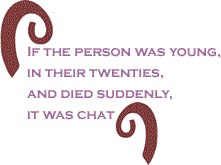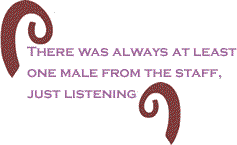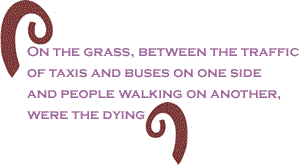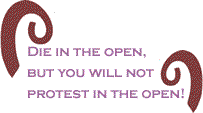
|
|||||||||||||||||||||||
 |
|

Custom Search
|
|
 |
|
“Don’t look down.” I didn’t like the grass around the house I was renting then. It was hard to cut grass on little hilly slopes, and, as a result, the grass around that house didn’t look so neat and trim. “If you are stressed by it, don’t look down,” she, an older woman neighbor, advised. When
I flew into the
I
need a computer. The But look at the sky, beautiful weather and smell the fresh air! I never had a way of communicating with friends back home from this campus, but I did receive a new Toshiba laptop! The Ethiopian campus administrators assured me they were working on a solution. I began my classes, met my students. A few were women. It began with one or two women students. Can we have a meeting with you? It was about thirty-five women students. The students selected a convenient evening, and we met in a classroom. Their dorms were horrible, they told me. They didn’t have books and computers, even though previous teachers and programs from the West shipped both books and computers to the campus. The male teachers and students ask them for sexual favors. Teachers from the West come and go. So maybe it will be the same, they said out loud. It will be the same. Maybe you will forget us, too.
I stood outside the truck looking at the women dorms. I saw young women sitting on the window sills and the curtains blew out around them. Abandoned public housing buildings? What is this? For male students, the buildings were in slightly better shape, but only enough so male students would recognize their supremacy over the women. I saw a high level Ethiopian administrator approaching me. Why are you here? No comment. The next minute, I was in the passenger seat of his car, heading back to the campus. He talked about the campus but didn’t mention the dorms.
You have something the others don’t have, right? I looked out the window at the hired men and women in dingy and tattered garbs looking at the administrator and at me as we passed. I saw my grandfather, dead for many years. A janitor - always in his gray-stripped overalls, hauling trash cans from the first to the third floor of the buildings he tended in the neighborhood. And then I saw the women students, waiting for someone not to forget them. Back at the campus entrance, we passed the gathering of men and women who always hung around the high-fenced gate with hopes of employment or free food. Men in green army uniforms, release the latch on the high gate. The place I returned to was no longer the same place I left earlier that day. My
English department (Ethiopian-Oromo and Indian) held faculty meetings,
but a Nigerian woman and I were never told about these meetings.
We are being excluded I told my supervisor in a phone call to
Two weeks later, I found a flyer on the English department door. It was written in Amharic! You women have your notice! Maybe you will forget us, too.
This
land in the south and in the east is inhabited, for the most part,
by the largest ethnic group, the Oromo. And I knew before I arrived
in In
Men, young and old, dressed in khakis and jackets or just rough-cut dark shawls, leading cattle, goats, or chickens to market, have the right to be everywhere and be seen everywhere. I walked among the white shawl women (Christians) and the women in the black chadors (Muslims). Women look older under the yellow light. Work
takes place outside, for the “kitchens” are a space near the home
where they work or outside a market where other women work as
sellers of produce and owners of food stalls. Work is hauling
concrete blocks on a construction site. Other women work lugging
wood or water, walking in sandals or bare feet. Some were store
clerks and secretaries. But at the time, only one official organization
represented women. I learned to cover my dreads because, in The
Federal Democratic Bole
Avenue is another world. Bole Avenue has sidewalks and western
style cafes and grocery stores and stores like Sony, selling big-screen
televisions and stereos. There are clothing stores with Western
wear and stores with all the appliances a middle class or wealthy
Ethiopian or expatriate desires to emulate the West household.
Nike, Mc Donalds, IBM and all the other corporations and their
products were well represented on Who wouldn’t love the “democratic” government? It makes you forget! I
taught a graduate level African Caribbean Women’s course with
a well informed Ethiopian male faculty member at There
was a big screen television at one Ethiopian hotel (my favorite)
near the center of the city on This model can pinpoint its target with amazing accuracy... Saddam, the evildoer… Scud missiles are no match… One
No. Forget it! Democracy? So many have died for this democracy? There were dark figures in the sky when I looked up again. What are those? What? What? And soon I realized those dark figures were hawks and vultures because below, on the grass, between the traffic of taxis and buses on one side and people walking on another, were the dying. Dark ashy skin, barely clothed, covered the bones of someone (I couldn’t tell) dying in the open, under the yellow sky.
I
sat in my home, in the dark, listening to BBC and the women outside
my door talking in whispers. Planes from the The
strikes continued. I couldn’t watch the show except at that one
hotel and even then I couldn’t bear to watch the show.
While
the hawks and vultures took their break, the planes flew overhead
to Development - the Hoist
a few to the top at the expense of the masses and you have a U.S.-brand
of political and economic oppression. Community members are no
longer fellow citizens. Development fosters corruption
since it begins with the premise that something will trickle down
from the sky and, if the masses are lucky, they will catch it.
They do, but it’s called shit by then! Development is all
about the advancement of capitalism, patriarchy, and racism, installing
the newest Washington D.C. is performing a farce we’ve seen before: A front face makes it appear that a team of busy bees are slaving away to remedy the domestic crisis with a “stimulus package,” (that is, a package that returns some workers to jobs and enough women to the malls), when the real government, less visible, engages in business as usual, funnels bank rolls of billions to its War on Terrorism Enterprise! Who can afford to forget! BlackCommentator.com Editorial Board member, Lenore Jean Daniels, PhD, has been a writer,
for over thirty years of commentary, resistance criticism and
cultural theory, and short stories with a Marxist sensibility
to the impact of cultural narrative violence and its antithesis,
resistance narratives. With entrenched dedication to justice and
equality, she has served as a coordinator of student and community
resistance projects that encourage the Black Feminist idea of
an equalitarian community and facilitator of student-teacher communities
behind the walls of academia for the last twenty years. Dr. Daniels
holds a PhD in Modern American Literatures, with a specialty in
Cultural Theory (race, gender, class narratives) from |
|
Any BlackCommentator.com article may be re-printed so long as it is re-printed in its entirety and full credit given to the author and www.BlackCommentator.com. If the re-print is on the Internet we additionally request a link back to the original piece on our Website. Your comments are always welcome. eMail re-print notice
If you send us an eMail message we may publish all or part of it, unless you tell us it is not for publication. You may also request that we withhold your name. Thank you very much for your readership. |
|
| |
|
| February
12, 2009 Issue 311 |
|
| Executive Editor: Bill Fletcher, Jr. |
| Managing Editor: Nancy Littlefield |
| Publisher: Peter Gamble |
| Est. April 5, 2002 |
Printer Friendly Version
in resizeable plain
text format or pdf
format. |
| Frequently Asked Questions |
 |

|
 |
 |
 |
| |
| |





























 The
ride to Alemaya from
The
ride to Alemaya from 
 In
order to see the dorms that housed the women students, I had to
take a campus vehicle with a campus hired hand to travel down
the road to the dorms. The campus operated a massive farm for
the study of agriculture. Well behind the campus buildings and
faculty housing was an area for the livestock. Students, faculty
and the community could purchase milk, butter, and bread from
the campus. Some distance away we came to the dorms for students.
In
order to see the dorms that housed the women students, I had to
take a campus vehicle with a campus hired hand to travel down
the road to the dorms. The campus operated a massive farm for
the study of agriculture. Well behind the campus buildings and
faculty housing was an area for the livestock. Students, faculty
and the community could purchase milk, butter, and bread from
the campus. Some distance away we came to the dorms for students. A
few days later, I was invited to take a ride with this same administrator
to pick up my laptop. We took the drive down the same road, stopping
at a huge warehouse. We got out and entered. The administrator
spoke Amharic to the man behind the counter. The man disappeared
between the shelves. These shelves extended from one end to the
other; they were filled with supplies and electronic equipment!
The women students told me they had seen boxes of books come into
the campus. But the boxes disappeared. I was sure the boxes of
books were here too. The items in this warehouse could have made
life better for the students. But - and I looked at the well dressed,
suit and tie administrator, but he didn’t look at me. The other
man returned with the Toshiba.
A
few days later, I was invited to take a ride with this same administrator
to pick up my laptop. We took the drive down the same road, stopping
at a huge warehouse. We got out and entered. The administrator
spoke Amharic to the man behind the counter. The man disappeared
between the shelves. These shelves extended from one end to the
other; they were filled with supplies and electronic equipment!
The women students told me they had seen boxes of books come into
the campus. But the boxes disappeared. I was sure the boxes of
books were here too. The items in this warehouse could have made
life better for the students. But - and I looked at the well dressed,
suit and tie administrator, but he didn’t look at me. The other
man returned with the Toshiba.
 Back
on the road again, and I am on the way to
Back
on the road again, and I am on the way to 

 I
gained access to the African Union, the division focusing on women’s
issues. They were not interested in some young women clear across
the country, but while there, I saw a hallway display of posters
and pamphlets about the practice of genital mutilation. I picked
up a batch of pamphlets thinking I could distribute this information
to my students and generate discussion. I showed the pamphlets
to the assistant supervisor, and she (educated in the
I
gained access to the African Union, the division focusing on women’s
issues. They were not interested in some young women clear across
the country, but while there, I saw a hallway display of posters
and pamphlets about the practice of genital mutilation. I picked
up a batch of pamphlets thinking I could distribute this information
to my students and generate discussion. I showed the pamphlets
to the assistant supervisor, and she (educated in the  As
it approached March, 2003, I learned to nod in the affirmative
when the men call out, “
As
it approached March, 2003, I learned to nod in the affirmative
when the men call out, “





